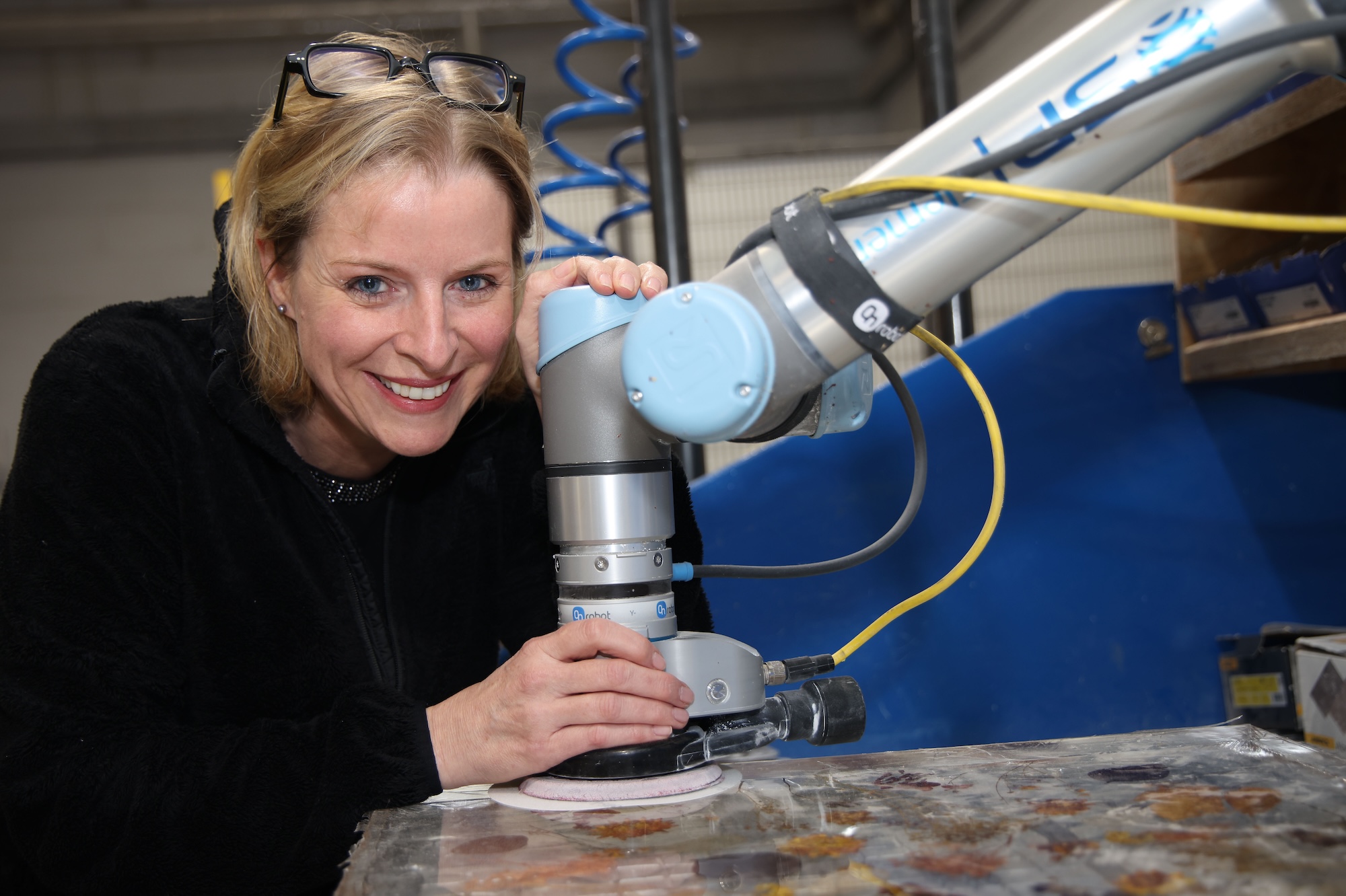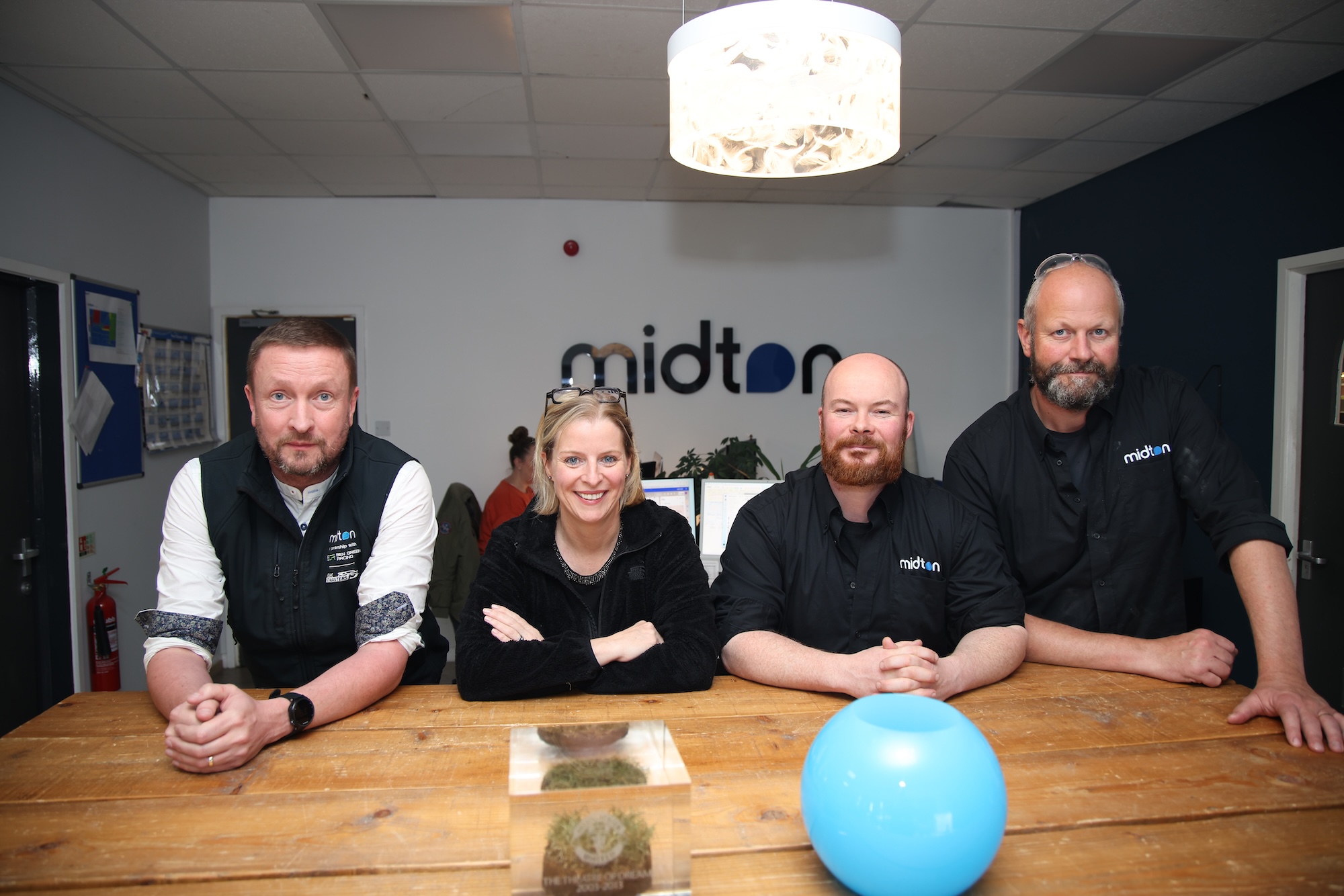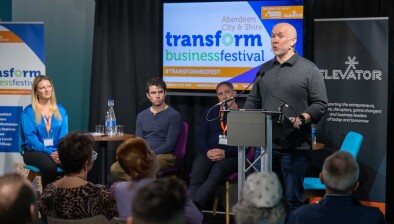Scotland’s SMEs in confident mood despite rising costs and funding challenges

Elevator CEO Rachel Ross at Midton Acrylics in Lochgilphead, Argyll
A survey of SMEs across Scotland has found business owners to be in confident mood despite rising costs and funding challenges.
The SME survey by Elevator also reveals that Scotland’s SMEs are adopting AI, hiring, and hungry for more support.
Elevator found that 2 out of 3 business owners want more external support with their business, with only half having accessed external finance. 40% of SMEs say access to finance is their biggest roadblock to growth, followed by talent (27%). The survey found that 74% of SMEs in Scotland are already using AI in their business, while 55% plan to invest in innovation and new technology.
72% of SMEs said their running costs have increased this year, but almost half (49%) still plan to hire over the next twelve months. 80% of SMEs cited the importance of local community to the success of their business.
The inaugural SME survey by business support organisation Elevator found that, in spite of growth challenges, 75% of respondents are either “extremely confident” or “somewhat confident” about their business prospects in the year ahead.
Elevator CEO Rachel Ross said: “While it’s encouraging to see the level of confidence in the Scottish SME sector, the survey has also revealed that the nation’s SME leaders want more external support, and that there are national disparities. Crucially, access to finance and understanding finance options remains a serious issue for businesses across the country.”
Nicola McCabe, operational director at Dundee-headquartered Group Electrical Services, said: “Like many SMEs, we’ve benefited from external support programmes, which has helped us scale from a single engineer to a team of nine in almost three years. Access to the right guidance and growth support has been instrumental in shaping our trajectory.”
Kate Hooper, managing director and founder of Inverness-based Strategy Story, a leadership and communications agency, said: “After seven years in business, 2025 brought an intense period of business development, fuelled by external training and innovation support. As a result, we enter 2025 stronger than ever, with big ambitions and firm foundations, while staying deeply connected to the community we love.”
Sam Gray, co-founder and CTO at Fort William-headquartered Energy Mutual, an online platform that supports distributed energy owners and energy managers worldwide, said: “There is a fantastic SME support community in Scotland that has been instrumental in getting us where we are today.
“Elevator, via the Shell LiveWire programme, provided us with connections, education, and funding, while Techscaler’s Silicon Valley mission gave us global ambition and fresh perspectives on artificial intelligence.”

Elevator CEO Rachel Ross with Midton Acrylics directors Graham Ramsay, Lewis Anderson and Craig Cameron at Midton's headquarters in Lochgilphead, Argyll
Graham Ramsay, director at Lochgilphead-based Midton Acrylics, a design and manufacturing firm that includes BrewDog, Formula 1, Johnnie Walker, Manchester City, Red Bull, Universal Music, and Virgin among its customer base, said: “As a growing SME, we’re hugely optimistic about the year ahead – particularly as we have embedded AI and new technologies into our processes, freeing our team up to focus on creativity, innovation, and delivering even more value to our clients.”
Nassima Brown, strategy director at Aberdeen-headquartered Fennex, which exports its safety management technology worldwide, said: “Aberdeen has been the launchpad for Fennex’s success. Winning the King’s Award for Enterprise underscores the global impact of our digital safety technologies, now used across more than 20 countries. As we scale into renewables and aim to double the business over the next three years, a strong local ecosystem will be vital to accelerating growth and showcasing what world-class AI and digital tech innovation from the North East can achieve.”
60% of respondents said grants are their primary source of external finance, 21% said debt finance, with 14% securing equity finance as their primary source. 43% have received support from Business Gateway, 28% from Scottish Enterprise, 13% from Scottish Government, 11% from UK Government, and 6% from Highlands and Islands Enterprise.
51% of respondents said their revenue increased in their last financial year, while 23% said their revenue decreased, and 26% said revenue stayed at a similar level. Around 40% of Scottish SMEs export outside the UK, with Europe the top export region ahead of North America and Asia.
83% said they don’t have a CFO, 75% don’t have a company board, while 85% said they don’t have a NXD.
On the importance of local community to business success, around 80% of Scottish SMEs said local community was “extremely important” or “somewhat important” to the success of their business. 92% said they believe entrepreneurship can build community wealth in Scotland.
Group Electrical Service’s Ms McCabe said: “Our local community plays a central role in our success, and we see firsthand how strong local entrepreneurship creates opportunities, builds trust, and drives standards across the industry.”
Ms Ross added: “Community and the role of entrepreneurship in building community wealth is overwhelmingly important to our SMEs in Scotland, and we think that is one the most interesting findings to come out of our survey.”
Asked what impact stronger local entrepreneurship would have in their area, Scottish SME leaders said more local jobs (77%), more opportunities for young people (68%), increased local pride and confidence (62%), better local services (57%), and stronger local supply chains (55%).







